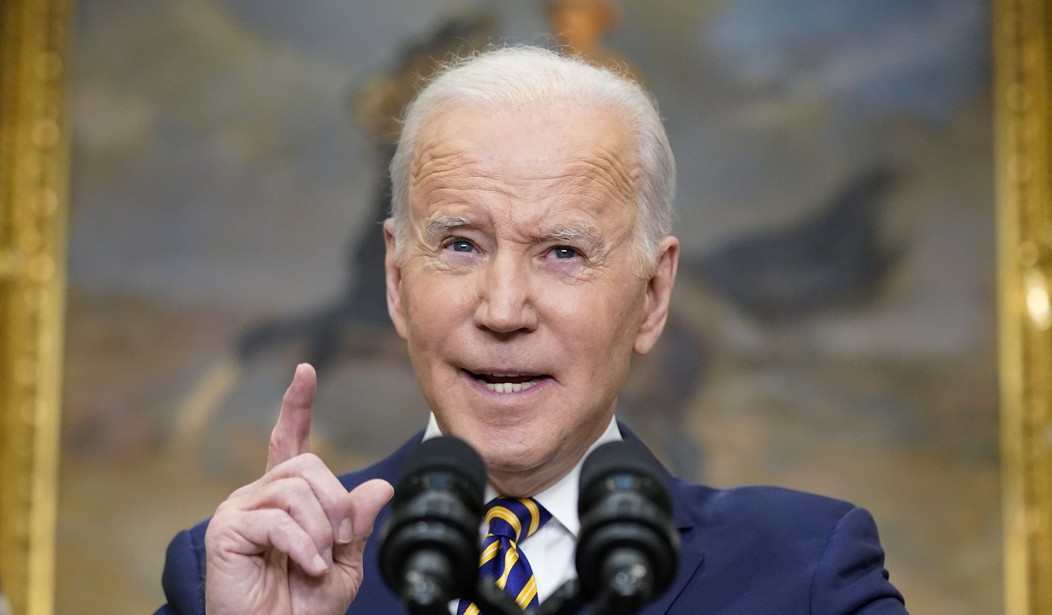Who will swerve first? The game of energy chicken sped up today between the West and Russia over the latter’s invasion of Ukraine. First the G-7 imposed a cap on the price of Russian oil, hoping to choke off revenues that fund the war:
The Group of Seven wealthy nations rolled out a plan to cap the price of Russian oil on global markets, committing to a novel sanctions design aimed at limiting Russia’s revenue from oil sales as its invasion of Ukraine grinds on.
The finance ministers of the G-7 said they would move to ban the insurance and financing of shipments of Russian oil and petroleum products unless they are sold under a set price cap.
With the plan, the U.S. and its allies are hoping to leverage their control over the financing and insurance of global shipping to force Russia to comply with the cap or face the possibility of being unable to ship its oil. Over 90% of the world’s ships are insured through a London-based association of insurers, according to Bruegel, a Brussels-based think tank. …
The plan seeks to resolve a dilemma that has so far confounded Western attempts to penalize Russia for its invasion of Ukraine: how to cut off Russia’s revenue without reducing global oil supply and raising prices. Inflation is already running at the highest levels in decades, posing a major economic and political problem for governments across the West.
Here’s a solution to the dilemma — have the US produce the oil instead. The US has proven oil reserves off both coasts, the Gulf of Mexico, and in the interior that the Biden administration refuses to allow producers to access. In fact, Joe Biden went out of his way to make it more difficult and more costly to pursue exploratory activities and production of crude oil as well as building new refining capacity, which in this context is a separate issue for gasoline supply in the US. Biden’s Executive Order 13990 imposed all sorts of new regulatory hurdles to disincentivize the kind of production that could have been used strategically to keep oil prices low enough to minimize Russian profits.
And even now, when the West desperately needs to crack down on Russian oil sales without making inflation worse, Biden is too beholden to the green extremists to act strategically. Instead, the G-7 will have to concoct a Rube Goldberg-esque system of “price caps” that simultaneously takes Russian oil off the market while making oil less expensive, or at least not more expensive. Good luck with that. Small wonder the Wall Street Journal notes that the G-7 still doesn’t actually have any firm idea of how to make this work.
In retaliation, Russia announced that it would take a more direct approach to this game of energy chicken as winter approaches in Europe. Nice gas infrastructure you built there, Moscow said — shame if anything happened to it — oh, wait:
Russia indefinitely suspended natural gas flows to Europe via a key pipeline hours after the Group of Seven agreed to an oil price cap for Russian crude—two opposing blows exchanged between Moscow and the West in an economic war running parallel to the military conflict in Ukraine.
Kremlin-controlled energy company Gazprom PJSC said late Friday it would suspend supplies of gas to Germany via the Nord Stream natural-gas pipeline until further notice, raising the pressure on Europe as governments race to avoid energy shortages this winter.
Gazprom said it had found a technical fault during maintenance of the pipeline, which connects Russia with Germany under the Baltic Sea. The company said the pipeline will remain shut down until the issue is fixed, without giving any timeline.
You know what might have avoided that? Strategic production of oil from the US flooding the market so that the G-7 didn’t need explicit sanctions to accomplish the same task through reverse-engineering the oil markets. Russia still could have retaliated anyway, but boosting production before the war may have made the whole issue moot by sapping Russian income and capital when it mattered most — as Vladimir Putin ramped up for his massive invasion of Ukraine.
On the other hand, it’s tough to have too much sympathy for European leaders in this crisis. The US has been warning Europe about their dependence on cheap Russian energy for years and they mainly scoffed — until this year. They should have figured out the geopolitical risks of this dependence in 2014 when Russia seized Crimea and occupied the Donbas by proxy. Everyone clucked their tongues and wagged their fingers and applied sanctions on Russia that never really impacted their war-making abilities after the 2014 invasions. And that was largely because of the EU’s and especially Germany’s decisions to ignore the strategic consequences of the Nord Stream pipelines and addiction to cheap Russian energy rather than invest in their own energy production.
They’re figuring that out now, even if Biden really isn’t. Germany reversed the shutdown plans of a half-dozen nuclear plants after the invasion of Ukraine and Russian energy retaliations. It’s not enough, and Russia will still have enough leverage over Europe to make them miserable. It’s not at all clear that the G-7 cap scheme will even present a hiccup in Russia’s income for its war in Ukraine. The G-7 had better start convincing the one member of the group that can strategically produce enough oil to change the markets organically to step up, and soon.








Join the conversation as a VIP Member